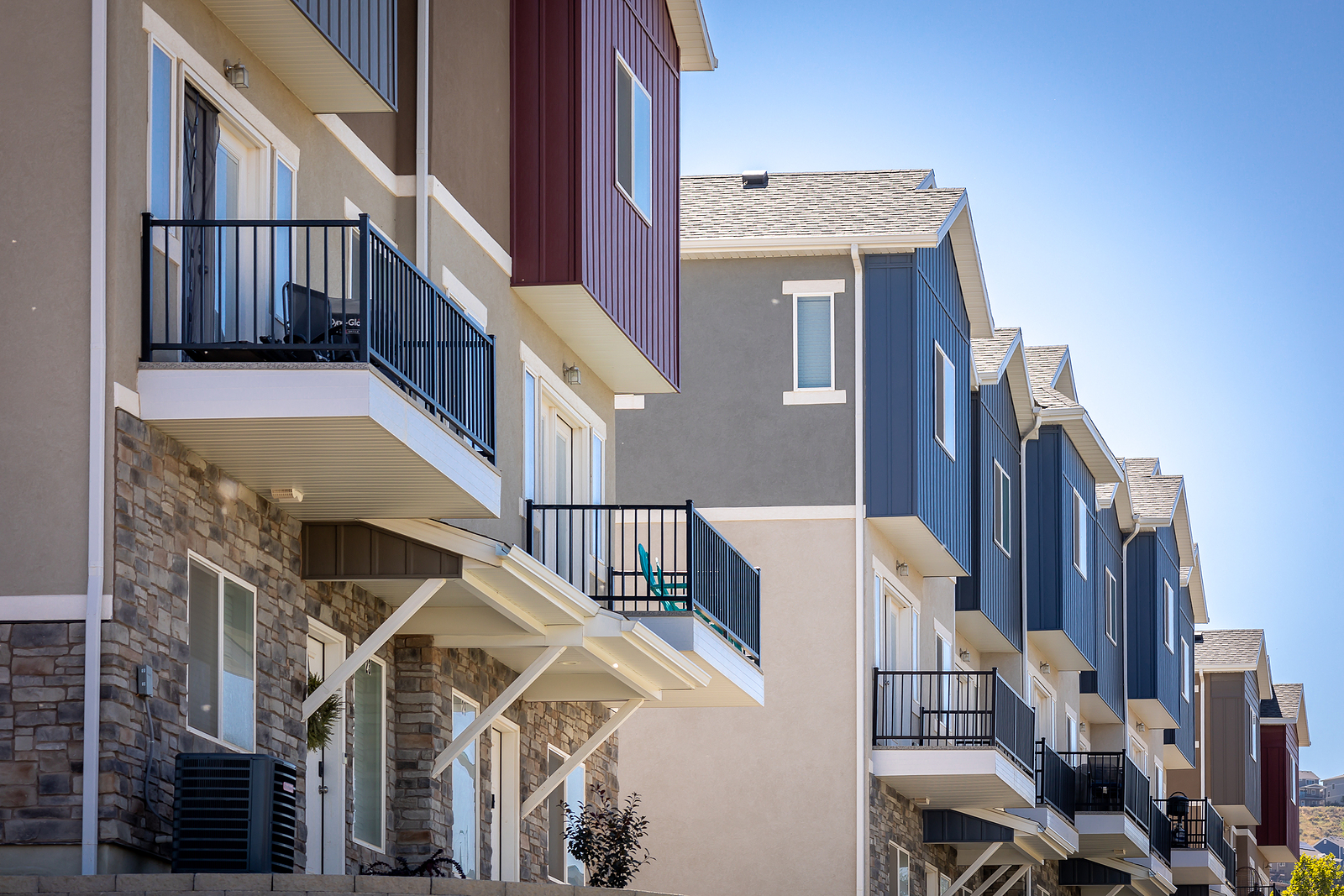Condominium living offers a unique and vibrant lifestyle, combining the convenience of urban living with the comfort and amenities of a well-maintained community. At the heart of this harmonious living environment is the Homeowners Association (HOA), which is responsible for managing and governing the condominium complex. However, for too long, HOAs have been perceived as bureaucratic entities enforcing rules and collecting fees, often with limited resident engagement.
In recent years, a shift has occurred, redefining the concept of condo living by embracing the power of HOA engagement. Recognizing the crucial role that active and involved residents play in fostering a sense of community, condominium associations now emphasize encouraging and promoting resident participation.
This blog article delves into the significance of HOA engagement in condominium living. We will explore the various responsibilities and functions of HOAs, highlighting the benefits that arise when residents actively engage with their HOA. Moreover, we will discuss strategies for increasing HOA engagement, including fostering community events, utilizing technology for better communication, and enhancing transparency and accountability.

The Role of HOAs in Condo Living
- Property Maintenance: HOAs ensure that the condominium complex remains visually appealing, safe, and well-maintained. This involves landscaping, exterior maintenance, and repairs to common areas like parking lots, swimming pools, and gyms.
- Rule Enforcement: HOAs establish and enforce community guidelines called Covenants, Conditions, and Restrictions (CC&R). These rules maintain order and uphold community standards, addressing issues like noise levels, pet policies, and architectural guidelines to preserve the overall aesthetic of the complex.
- Financial Management: HOAs collect fees, known as assessments or dues, from homeowners to cover the costs associated with operating and maintaining the community. These funds are allocated towards common area maintenance, insurance, utilities, and other shared expenses.
- Governance and Decision-making: HOAs are responsible for making decisions that impact the community. This includes approving budgets, selecting vendors and contractors, and establishing policies and procedures for the community.
In the next section, we will look into the power of HOA engagement and how it can redefine condo living by strengthening community bonds and improving the overall quality of life.
Understanding the Power of HOA Engagement
HOA engagement is known for providing a wide range of benefits. However, the most common of these are the following.
A. Enhancing the Sense of Community
Active HOA engagement can significantly enhance the community within a condominium complex. By organizing social events, fostering communication, and promoting neighborly interactions, the HOA creates opportunities for residents to connect and build relationships. These community-building efforts can increase social cohesion, a more robust support network, and residents’ greater sense of belonging. When residents feel connected to their neighbors and have a sense of community, it enhances their satisfaction with condo living.
B. Promoting a Harmonious Living Environment
Engaged HOAs play a vital role in promoting a harmonious living environment. By enforcing community guidelines and resolving disputes fairly and transparently, the HOA helps maintain a sense of order and ensures that residents enjoy a peaceful and respectful living environment. When rules and regulations are consistently enforced, and conflicts are resolved effectively, it fosters a culture of mutual respect and consideration among residents.
C. Protecting Property Values
One of the significant benefits of HOA engagement is the protection of property values. An active and well-managed HOA ensures that the common areas and amenities are well-maintained and aesthetically pleasing. This upkeep contributes to the community’s overall appeal, making it an attractive place to live. When property values are protected, it benefits all homeowners within the condominium complex, as it provides a solid investment and a higher potential for future appreciation.
D. Facilitating Effective Communication and Decision-making
HOA engagement is instrumental in facilitating effective communication and decision-making processes within the community. Engaged HOAs prioritize open and transparent communication channels, ensuring residents are well-informed about important updates, community projects, and upcoming events. By seeking input and feedback from residents, the HOA can make more informed decisions that align with the needs and preferences of the community. This inclusive approach encourages a sense of ownership and involvement among residents, as they feel their voices are heard, and their opinions matter.
In the following section, we will explore strategies for increasing HOA engagement and empowering residents to actively participate in shaping their condo living experience.

Strategies for Increasing HOA Engagement
It is best to consider doing the following to achieve increased HOA engagement.
A. Encouraging Resident Participation
- Organizing Community Events and Activities: HOAs can coordinate regular community events such as social gatherings, holiday celebrations, or recreational activities. These events provide opportunities for the residents to interact and feel more connected to the community.
- Establishing Resident Committees: Forming resident-led committees focused on various aspects of community life, such as landscaping, social activities, or sustainability initiatives, can empower residents to contribute their skills and ideas. These committees allow for greater resident involvement in decision-making processes and provide a platform for residents to actively participate in shaping their living environment.
- Promoting Open Forums and Town Hall Meetings: Hosting regular open forums or town hall meetings where residents can share their opinions, concerns, and ideas can foster an open dialogue and encourage resident engagement. These platforms allow for transparent communication and allow residents to collaborate with the HOA board on important community matters.
B. Utilizing Technology for Improved Communication
- Implementing Online Platforms and Forums: Creating online platforms or forums dedicated to the condominium community can facilitate communication and engagement. Residents can access important information, participate in discussions, and provide feedback conveniently. These platforms can be used to share updates, announce upcoming events, and seek input from residents on various community matters.
- Using Social Media for Community Updates: Leveraging social media platforms like Facebook groups or community-specific pages can help the HOA reach a wider audience and engage residents. Regularly sharing community updates, photos, and relevant information on social media can foster a sense of community and encourage residents to stay informed and engaged.
- Sending Regular Newsletters and Emails: HOAs can establish a regular newsletter or email communication system to inform residents about community news, upcoming events, important announcements, and ongoing projects. This direct communication channel helps residents stay connected and encourages their active involvement.
C. Strengthening Transparency and Accountability
- Sharing Financial Information and Budget Details: HOAs should strive to provide transparency in financial matters by sharing budget details, annual financial reports, and the breakdown of assessment fees. This transparency builds trust and ensures residents understand how their contributions are being utilized for the betterment of the community.
- Providing Regular Updates on HOA Projects and Initiatives: Keeping residents informed about ongoing projects, maintenance schedules, and improvement initiatives demonstrates the HOA’s commitment to transparency and accountability. Regularly updating residents on the progress and outcomes of these projects fosters a sense of involvement and ownership among residents.
- Seeking Resident Feedback and Input: Actively soliciting resident feedback and input on important decisions or proposed changes can make residents feel valued and engaged. Surveys, suggestion boxes, or online feedback forms can gather resident opinions and preferences, allowing the HOA to make more informed decisions that align with the community’s desires.
By implementing these strategies, HOAs can empower residents to actively participate in shaping their condo living experience, fostering a vibrant and engaged community. In the next section, we will explore real-life success stories of HOA engagement in condo communities, highlighting its positive impact on residents’ lives.
Overcoming Challenges to HOA Engagement
While HOA engagement is crucial for fostering a strong sense of community in condominium living, there are challenges that HOAs may encounter. By addressing these challenges proactively, HOAs can overcome barriers and create an environment encouraging resident engagement.
A. Dealing with Apathy and Lack of Interest
- Enhancing Communication: HOAs should prioritize clear and effective communication to ensure residents are well-informed about community matters. Regular newsletters, emails, and community-wide announcements can help overcome apathy by keeping residents engaged and informed.
- Showcasing the Benefits: Highlighting the positive outcomes and benefits of HOA engagement, such as enhanced property values, improved amenities, and a vibrant community, can motivate residents to get involved. Sharing success stories and testimonials from engaged residents can serve as inspiration.
- Offering Diverse Opportunities for Involvement: Recognize that residents have different interests and availability. Provide a range of opportunities for engagement, such as participating in social committees, contributing expertise to specific projects, or attending community events. By catering to diverse interests and preferences, HOAs can increase resident participation.
B. Addressing Conflicts and Fostering Constructive Dialogue
- Establishing a Mediation Process: Implement a fair and transparent mediation process to resolve resident conflicts. Encouraging open dialogue and offering neutral third-party mediation can help constructively address disputes and maintain a harmonious living environment.
- Promoting Active Listening and Empathy: HOA board members should actively listen to residents’ concerns, opinions, and suggestions. Demonstrating empathy and understanding goes a long way in building trust and fostering constructive dialogue.
- Encouraging Resident Involvement in Decision-making: Involve residents in decision-making processes to ensure their perspectives are considered. By actively seeking resident input and involving them in important decisions, HOAs can address conflicts and build consensus within the community.
C. Ensuring Inclusivity and Representation Within the HOA
- Diverse Board Representation: Ensure the HOA board reflects the community’s diversity by encouraging residents from various backgrounds to run for board positions. This inclusivity promotes a sense of representation and encourages broader resident engagement.
- Clear Election Processes: Implement fair and transparent election processes for board positions, allowing all eligible residents to participate. Communicate election timelines, nomination procedures, and voting mechanisms to ensure a democratic and inclusive approach.
- Welcoming New Residents: Develop initiatives to welcome and integrate new residents into the community. HOAs can help new residents feel included and motivated to engage with the community by organizing orientation sessions, providing information packets, and mentoring newcomers.
By actively addressing these challenges, HOAs can create an environment that fosters engagement, collaboration, and a strong sense of community among residents. In the concluding section, we will summarize the importance of HOA engagement in redefining condo living and highlight the potential benefits of an engaged community.
Conclusion
Condo living can be genuinely redefined through the power of HOA engagement. By actively involving residents in decision-making and promoting a sense of community, HOAs can transform condominium complexes into vibrant and thriving living environments. Through this article, we have explored the role of HOAs in condo living, the benefits of HOA engagement, strategies for increasing resident participation, and overcoming challenges along the way.
Active HOA engagement enhances the sense of community by organizing events, fostering communication, and promoting neighborly interactions. It creates a harmonious living environment by enforcing rules, resolving conflicts, and maintaining order within the community. Furthermore, HOA engagement protects property values by ensuring well-maintained common areas and upholding community standards.
To increase HOA engagement, HOAs can encourage resident participation through community events, resident committees, and open forums. Leveraging technology, such as online platforms and social media, can improve communication and reach a wider audience. Strengthening transparency and accountability by sharing financial information and seeking resident feedback is also crucial in fostering engagement.
While challenges such as apathy, conflicts, and inclusivity may arise, proactive measures such as effective communication, showcasing benefits, mediation processes, and diverse board representation can overcome these obstacles. By addressing these challenges, HOAs can create an inclusive and engaged community that truly embraces the power of HOA engagement.
Ultimately, an engaged HOA creates an environment where residents feel connected, valued, and actively involved in shaping their condo living experience. This sense of community fosters a higher quality of life, enhances property values, and contributes to a harmonious and enjoyable living environment.




